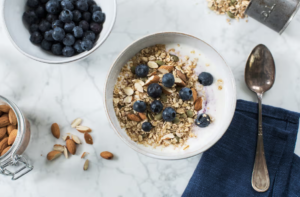Do You Know About Ultra-Processed Food?
News Desk
Islamabad: Often, we use items called ultra-processed foods in our daily meals; consuming more of them can cause serious diseases but what do we know about such foods?
The term ultra-processed foods was coined over 15 years ago, and its variants include brown bread and ice cream that are manufactured through industrial processing.
Ultra-processed foods are different from regular foods; they contain ingredients that you would not normally find in your home kitchen, and additives are added to make the food taste better.
According to the Guardian report, author Chris Van Tolkien quoted Brazilian scientist Fernanda Raber as saying that “most ultra-processed foods are not recognized as healthy foods”. These are called industrially produced edible substances.

In fact, ultra-processed foods are extremely delicious. But two recent studies have linked these foods to an increased risk of high blood pressure, heart disease and stroke.
Hospital for Tropical Diseases Infectious Diseases Dr Van Tulken said that excessive consumption of ultra-processed food can cause obesity, cancer, type 2 diabetes, depression, and dementia.
A study published in 2019 found that the average UK diet consists of 57 per cent ultra-processed food.
What foods are not ultra-processed?
There are two main categories of foods that are definitely not considered ultra-processed.
The first category includes foods that are natural, for example, fresh and dried fruits and vegetables, plain milk and yogurt, fresh meat and fish, grains, eggs, flour and nuts.
The second category includes ingredients used in flavoured cooking, such as butter, honey, maple syrup, sugar, salt and vinegar.
The most common examples of ultra-processed foods that you should be careful about include cold drinks, snacks, sweets, and chocolate. Items like ice cream, biscuits, cakes, pastries, sausages, burgers, pizza, and chicken nuggets are also considered ultra-processed foods.
They are included in baby foods, including flavoured yogurts and cereal packets.
 According to Van Tolkien, if there are ingredients you don’t recognize or don’t know when shopping for something like this, it could be ultra-processed foods.
According to Van Tolkien, if there are ingredients you don’t recognize or don’t know when shopping for something like this, it could be ultra-processed foods.
Ultra-processed foods often claim ‘it’s high in fiber’ or ‘it’s a source of protein’ on their packet packaging. If you carefully read the protein, sugar and fibre details in these ingredients, especially when they appear prominently on the label, there is a strong possibility that the product is ultra-processed.
University of So Paulo Nutrition and Public Health Professor Carlos A. Montero suggests that ingredients not commonly used in the home kitchen should be listed at the beginning or middle of the ingredient list on food packaging.
Eating ultra-processed foods for a month can lead to sleeplessness, heartburn, constipation, lethargy and weight gain. Compared to people who ate fewer ultra-processed foods, people who ate ultra-processed foods gained 500 more calories per day.
The hormones responsible for hunger increase while the hormone that makes us feel full decreases.
These foods often contain excessive amounts of sugar and unhealthy fats that can lead to various health problems such as obesity, heart disease and diabetes. It is pertinent to mention that you cannot rely on exercise alone to reverse its negative effects.

Comments are closed.